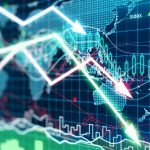
Between increasing inflation, overseas conflicts, and rising interest rates, it comes as no surprise that many Americans are concerned about an impending recession. However, there is some debate among economists about whether the United States is truly headed toward recession given other factors, such as a relatively strong labor market.
To guide investors in making the wisest choices for their wealth management plans, the team at HighPoint Advisors, LLC, explains the current conversation surrounding recession and what it means for your investments.
What Constitutes a Recession?
There is no universally accepted definition of recession, which makes it difficult to classify the current economic situation as one. Traditionally, investors and analysts have designated the term for two consecutive quarters where the gross domestic product (GDP) wanes. Another definition comes from the National Bureau of Economic Research (NBER), which states that a recession is a nationwide decline in economic activity persisting for more than a few months.
Recession stems from economic circumstances and how they affect investor perception, causing people to alter their investments. They usually do not occur arbitrarily. Financial analysts often examine how economic trends may set the stage for a recession to happen soon. Specific issues that can lead to a recession include:
- Inflation
- Low employment opportunities
- Supply chain problems
- Spending changes
- Higher interest rates
- Fluctuations between investor optimism during boom years and pessimism following market crashes
Factors Contributing to the Current Economic Condition
While the debate regarding whether the U.S. is in a recession remains contentious, economists agree the current economic environment is turbulent. Given the restrictions people faced during the COVID-19 pandemic, many analysts were hopeful that individuals would spend and invest more when constraints were lifted, possibly triggering an economic boom. However, concerns about recession continue to loom — perhaps larger.
What is behind this financial worry? The following are three aspects adding to recession fears:
Interest Rates
To help control rising inflation, the U.S. Federal Reserve is boosting short-term interest rates. When interest rates are higher, it costs more for American companies to borrow money to invest in innovation and growth initiatives. From the consumer perspective, increased interest rates limit spending money.
Elevating interest rates may seem counterintuitive, but the goal is to reduce economic activity and keep inflation from swelling. However, this tactic has short-term ramifications for investors, further tightening purse strings for those already feeling the pressure of higher prices.
One area where higher interest rates are making a significant impact is mortgages. Although low mortgage rates had increased home prices for a time, the national average for a 30-year fixed mortgage has doubled in 2022. This change has settled the highly competitive housing market, but growing mortgage rates may cancel out the payoff.
Supply Chain Disruptions
Inflation is a primary reason so many are worried about a recession. Major causes for inflation include embargos against Russian energy sources and supply chain issues happening in Asia. The U.S. relies on both countries for vital resources. Higher prices are impacting virtually every necessity, from gasoline to groceries.
Consumer Spending
A direct result of inflation is less consumer spending. With nearly everything costing more, many people have needed to take money from their savings accounts to pay for staple items. This also means some consumers have racked up credit card debt. The combination of decreased savings and growing debt represents an unsustainable attempt to rectify the challenges of inflation.
The Road Ahead: Why Investors Should Not Give up Hope
The current economic situation has led to a bear market, which means markets are down more than 20% in practically all categories. These conditions are worrying investors, particularly those in the process of retirement planning or already retired.
However, investors should know that recessions are somewhat common and they usually do not last long. Furthermore, some past recessions have created positive opportunities for long-term investors because they were followed by stronger bull markets that lasted longer than the preceding recession. In other words, investors should retain their investments as much as possible to avoid missing out on the potential for future economic booms.
Contact the Experienced Financial Advisors at HighPoint Advisors, LLC
Given the challenges of the current economy, it’s wise to have a financial advisor with the skills and resources to help manage your investments. At HighPoint Advisors, LLC, you can obtain holistic financial planning from a certified financial planner and other advisors to help pursue your long-term goals.
We follow a client-first approach, providing you with opportunities found at large financial advisory firms while maintaining the commitment to customer service commonly found at boutique establishments. Contact us today to learn more about our financial services for clients in Central New York, Syracuse, and all other markets we serve.
The opinions voiced in this material are for general information only and are not intended to provide specific advice or recommendations for any individual. All performance referenced is historical and is no guarantee of future results. All indices are unmanaged and may not be invested into directly. Economic forecasts set forth may not develop as predicted and there can be no guarantee that strategies promoted will be successful. This material was prepared by Advanced Media Group

